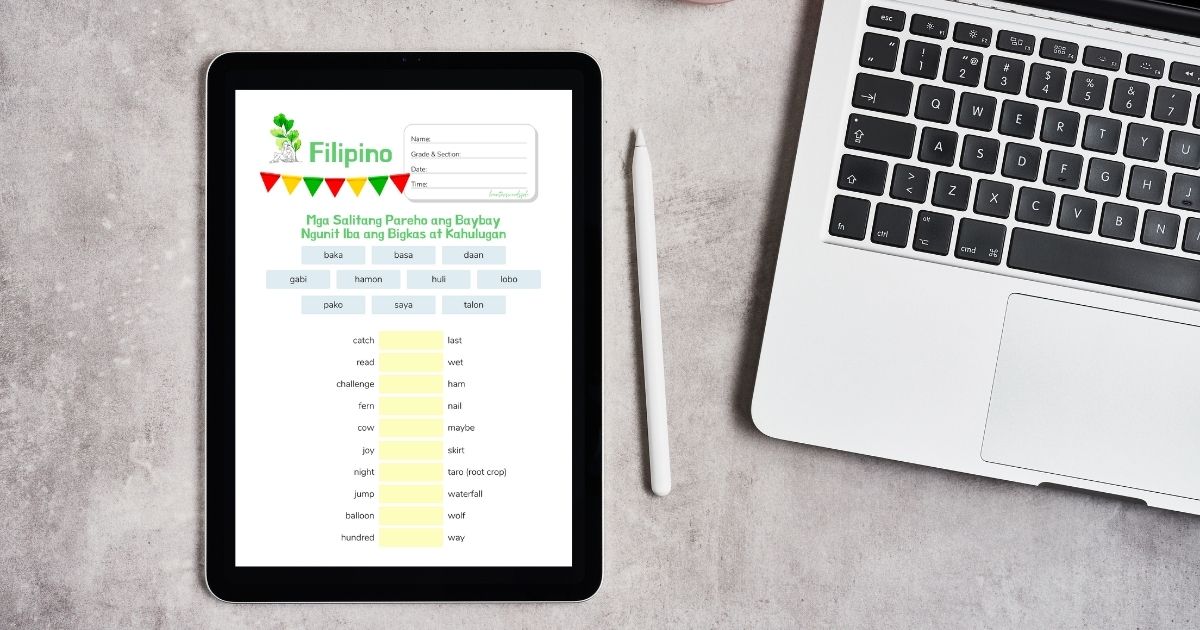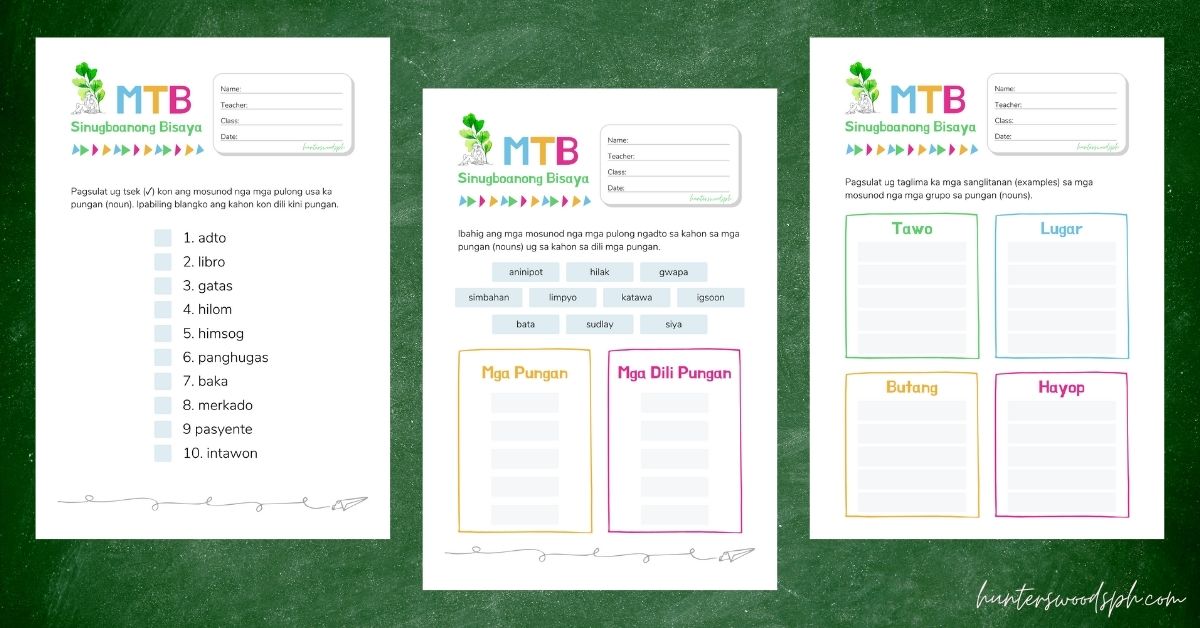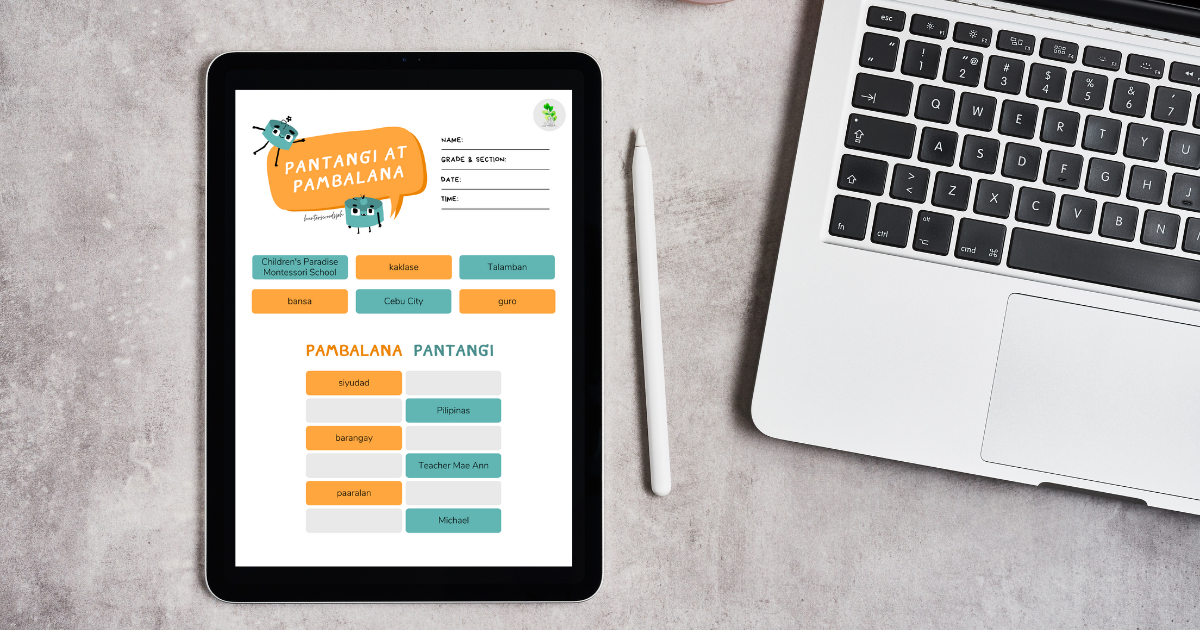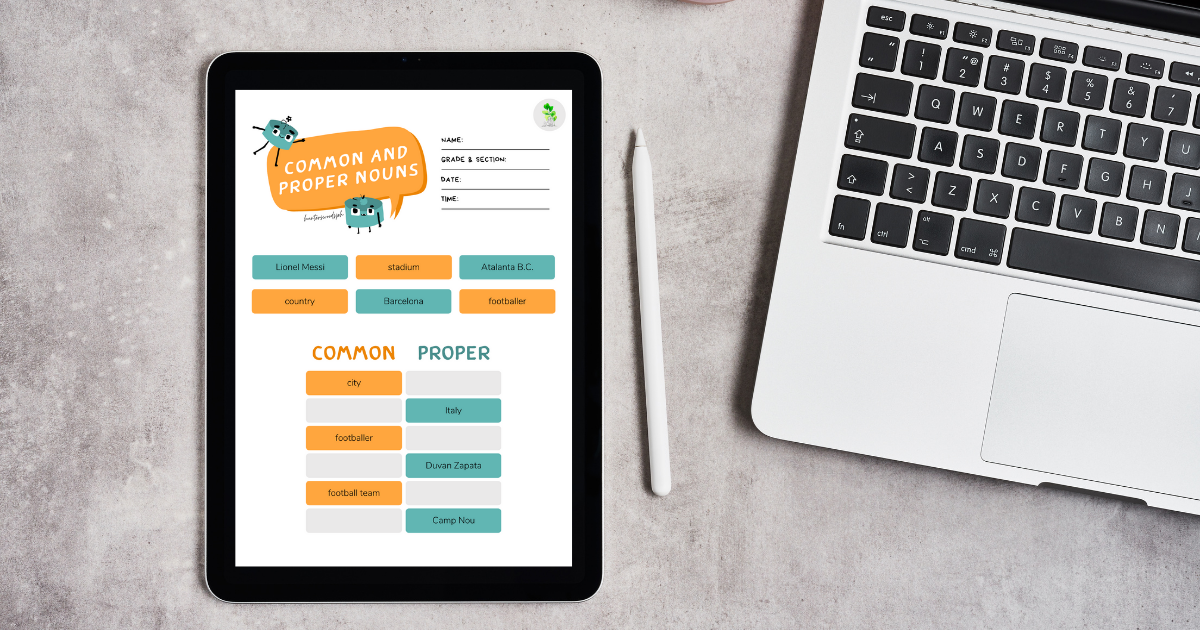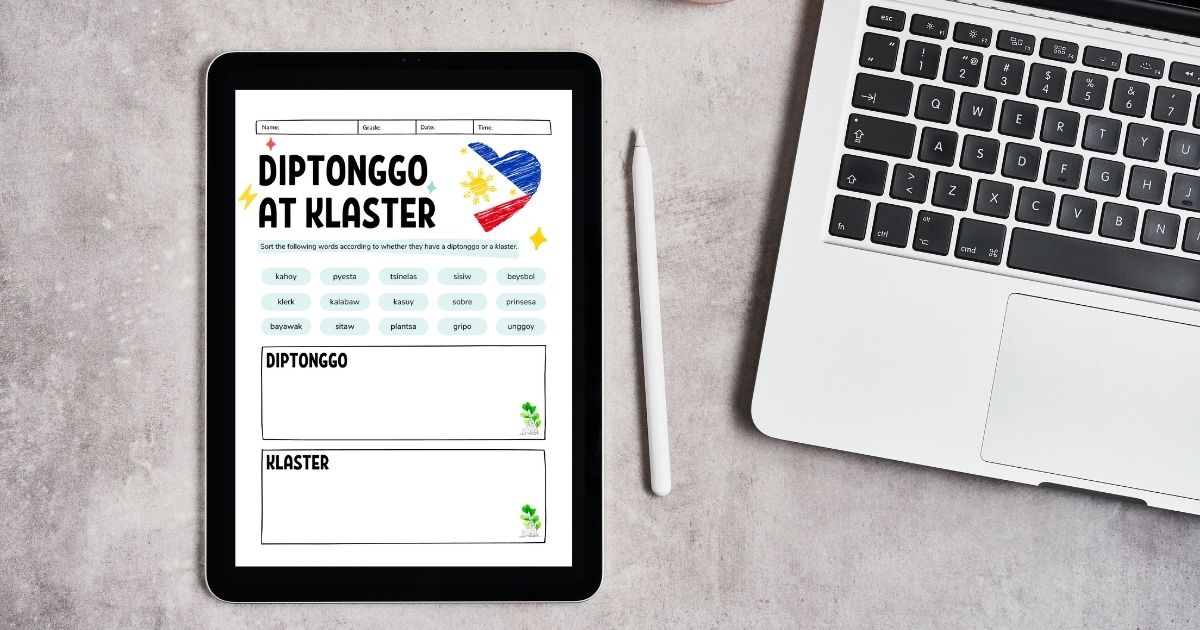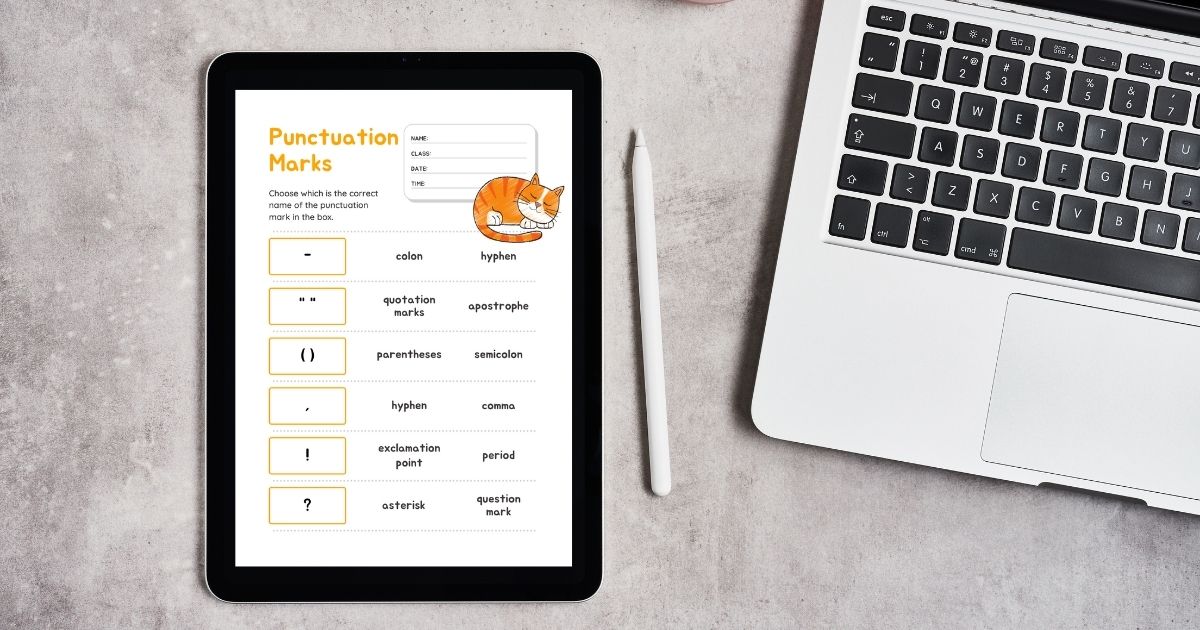An example list and worksheet of mga salitang pareho ang baybay ngunit iba ang bigkas at kahulugan (Filipino words that have the same spelling but different pronunciation and meaning).
Category: Montessori-Inspired Worksheets
Worksheets to help kids master lessons in the Montessori curriculum
Mga Pungan: Pag-ila ug Paghimo ug Sanglitanan (MTB Sinugboanong Bisaya)
Nouns are called pungan in Sinugboanong Bisaya. Identify nouns from non-nouns and give examples (paghimo ug mga sanglitanan) for each group of nouns.
Montessori Filipino Lesson and Worksheet: Pantangi at Pambalana
A quick definition of mga pangngalang pantangi at pambalana (proper and common nouns) and two interactive worksheets (sorting and giving examples) to help you master this Filipino lesson.
Common and Proper Nouns (Montessori English Language Lesson and Worksheet)
A quick definition of common and proper nouns and two interactive worksheets (sorting and giving examples) to help you master this English language lesson.
Collective Nouns (Montessori English Language Lesson and Worksheet)
An unkindness of ravens, a blessing of unicorns. Can you guess the other terms used to refer to a group of animals? Live and learn in this fun lesson on collective nouns.
Montessori Filipino Lesson & Worksheet: Diptonggo at Klaster
A quick Filipino lesson and interactive worksheet on diptonggo at klaster
Montessori Geography Lesson & Worksheet: Landforms and Bodies of Water
From a worksheet inspired by the AMI Montessori nomenclature cards on land and water forms to a worksheet involving spotting common landforms and bodies of water on a map, these colorful worksheets will help the child master the most common landforms and bodies of water.
Montessori English Mastery Worksheets: Identifying Punctuation Marks
Period! Question mark! Quotation marks! Parentheses! Name the different punctuation marks in these worksheets.
Montessori Filipino Lesson and Worksheets: Tamang Bigkas ng Mga Salita
A quick lesson and interactive worksheets on the correct pronunciation of Filipino words (tamang bigkas ng mga salita sa Filipino/Tagalog): malumay, malumi, mabilis, maragsa.
Montessori Filipino Worksheets: Patinig, Katinig, Pormasyon ng Pantig
Complete words using different patinig (vowels) and katinig (consonants). Identify the structure of a syllable (pantig): P, KP, PK, KPK, PKK, KKP, KKPK, KPKK, KKPKK, or KKPKKK.

